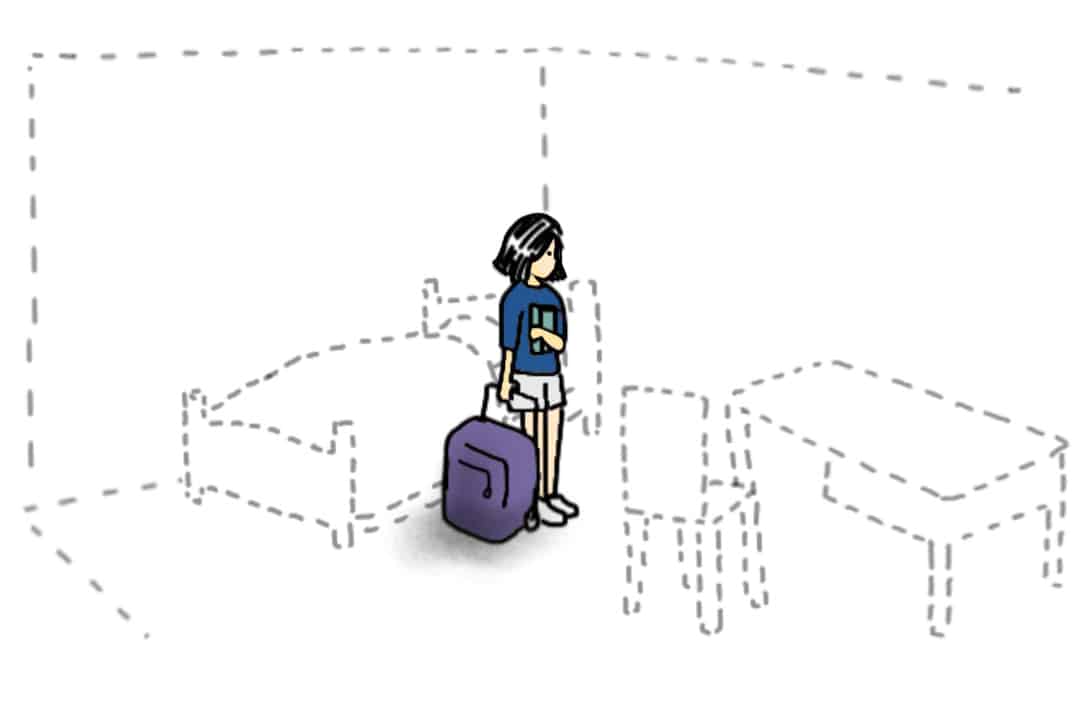Twenty one per cent of U of T’s student body is international. Whether as part of that percentage or as a Canadian who is new to Toronto, many students are calling Toronto their home for the first time.
I moved to Toronto last year, and it was intimidating at first. Especially for someone coming from a smaller town, the sheer size and density of the city were overwhelming. I remember my first night in Toronto; I was terrified by the mere fact that, in the entire city, nobody knew I existed. It was isolating. Since then, I’ve managed to find a community and a strong sense of belonging here. It might seem difficult at first, but by getting out of your comfort zone and being intentional in the way you approach life, you can very easily call Toronto your home.
For many students, including me, COVID-19 introduced additional barriers to socializing and finding community at the university. It showed many people how important social bonds are for mental health and fulfillment. Hopefully, with the reduction of case numbers, we can begin to rebuild old communities and foster new ones.
Finding your community
Arguably the most important factor in feeling a sense of belonging to a place is having a community. You might not necessarily meet that community through, for example, a Spanish study group, although we often find our people in the most unexpected of circumstances.
I met my roommates on U of T Roommate Finder and they are now my closest friends. Even so, we didn’t become best friends instantly, it took time and effort. Finding your community can be stressful, but with effort, patience, and looking down some unexpected paths, it’ll come.
Finding your safety strategies
Toronto can feel unsafe at times, which is a point of anxiety for many who are new to the city. How can you call a place home when you don’t feel safe residing there? For someone who hasn’t yet lived in a big city, the shift can be jarring. Once you get a grasp on how to move about the city in a way that feels safe and comfortable, it makes a massive difference.
Being capable of self-defense has made me feel much safer. Even though I’ve never had to use the self-defence tactics I learn in my boxing classes, I walk home at night with my hand on my alarm; it gives me the same comfort a stuffed animal would. Being able to throw a punch or set off a deafening alarm makes me feel much better.
Finding your place
Once you feel secure navigating the city, it’s valuable to find places that feel like home. Rather than giving you a list of places to check out, I’m going to stress the importance of narrowing down your hobbies and finding places in Toronto that cater to those. You begin to feel like you belong in a place when you’re able to imbue some of yourself into it.
You can make the city your own by cultivating a map of comfort-spots. Personally, I love reading. I read at Philosopher’s Walk when I need to clear my mind. Irrespective of a specific hobby, finding places where you can be a regular often provides the same level of comfort. The Slanted Door café in the Annex is a serene spot with great coffee and an even better atmosphere. By intentionally taking time to find those places that make you feel welcomed, you can begin to form memories that will make up the foundation of your attachment to the city.
It took me over a year to find my place here, and while that was even more difficult due to the COVID-19 pandemic, settling into a new environment is always a process. Finding belonging takes time, feeling comfortable, having a support system, and finding places that make you feel at home. It takes effort and intention, so I urge you to step away from course work for a bit of time each week to develop your life here.
Toronto will likely never replace your hometown, but that’s okay, because it’s meant to serve a different purpose. This city is likely where you will develop your independence, sense of self, and future. So let it be a different kind of home, one where you can feel a stronger sense of freedom and individuality.


